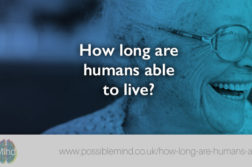While some people experience very real symptoms of illness, those symptoms may be induced by their thinking.
Here’s a look at some of the psychological factors behind illnesses.
1. Placebo Effect
Ted Kaptchuk at Harvard Medical School is studying how placebo treatments could work—without deceiving patients, which is a major concern for such treatment.
In a 2010 study, he found that patients who were told they were being given a placebo (and that placebo treatments can help) showed as much improvement as patients treated with real medicine. It seems the placebo treatment still works even when the patient knows it’s a placebo.
Kaptchuk looks at the way in which treatment is administered—the environment, the doctor’s manner, and other such factors related to how “cared for” the patient feels.
In the 1970s, researchers also found that placebos spurred chemical responses in the brain with similar effects to drugs. It’s about finding how to stimulate the brain into a response that has the same effect as the placebo.
2. Nocebo Effect
The Merriam Webster dictionary defines a nocebo as: “a harmless substance that when taken by a patient is associated with harmful effects due to negative expectations or the psychological condition of the patient.”
New Yorker magazine gives an example of the nocebo effect: “After the 1995 Aum Shinrikyo sarin nerve-gas attack in Tokyo, for example, hospitals were flooded with patients suffering from the highly publicized potential symptoms, like nausea and dizziness, but who had not, it turned out, been exposed to the sarin.”
3. Healing With Positive Thinking
Joe Dispenza is a neuroscientist who was able to heal himself with positive thinking. He suffered from fractures to his vertebrae due to a car accident, and doctors said that the only way he could walk again would be to have an operation…






